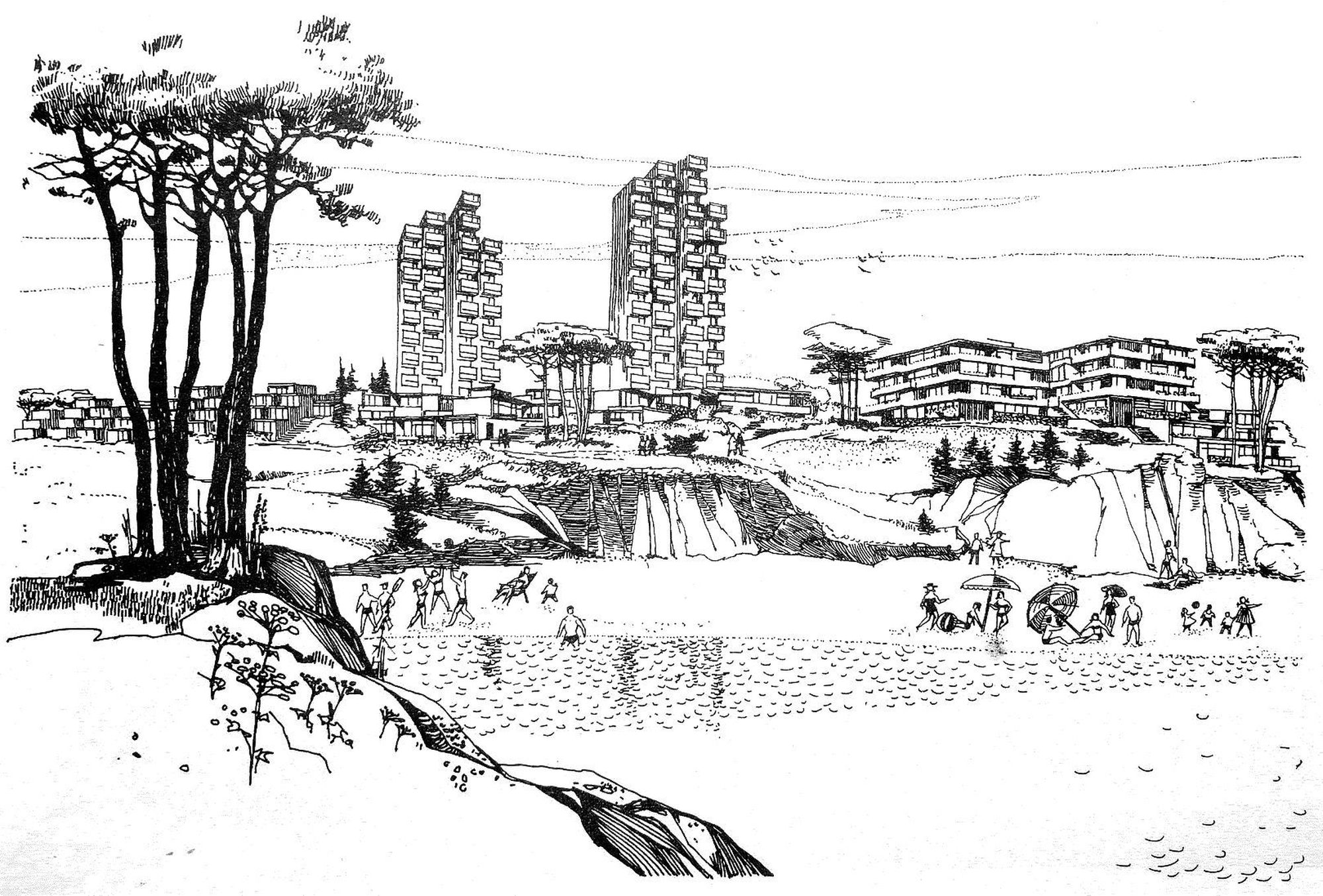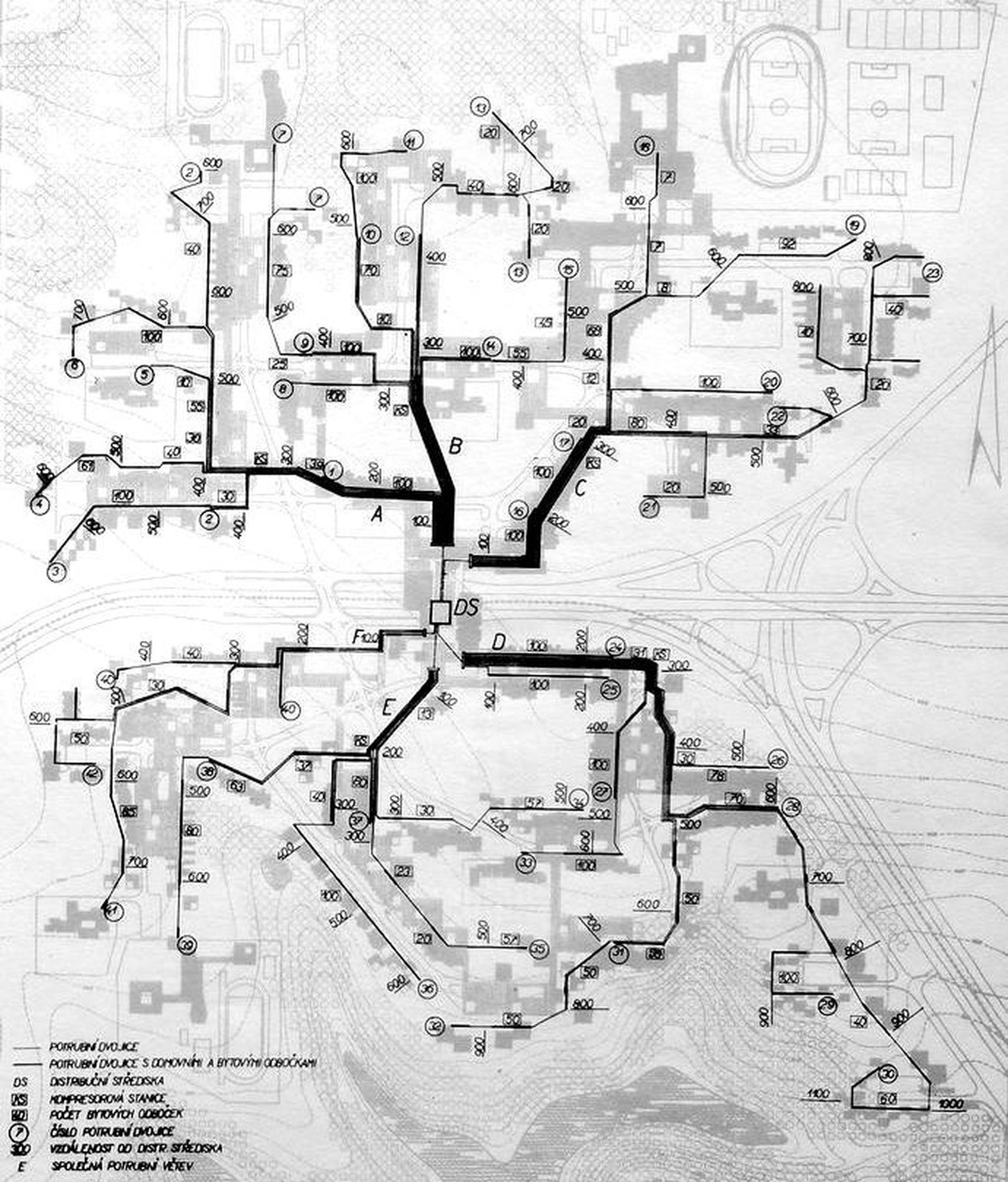Maroš Krivý, “Automation or Meaning? Socialism, Humanism and Cybernetics in Etarea,” Architectural Histories 7, 1 (2019).
Designed in 1967 for a site near Prague, Czechoslovakia, and exhibited that year at the Montreal Expo, Etarea was to be a city of 135,000 inhabitants, where the conveniences of automated infrastructure would satisfy future socialist generations. Conceived by the architect Gorazd Čelechovský as the ideal communist city, the case offers compelling insight into the influence of Marxist humanism and systems theory on post-war and specifically post-Stalinist state socialist architectural culture. The question of meaning, put centre stage in Etarea, was considered in terms of both cybernetic communication and existential phenomenology, and its function was no less than to advance the communist transition. Three aspects to Etarea are analysed in detail: the territorial question of the city-country divide, the balance between automation and socio-psychological meaning and tensions between political emancipation and cybernetic control.
Designed in 1967 for a site near Prague, Czechoslovakia, and exhibited that year at the Montreal Expo, Etarea was to be a city of 135,000 inhabitants, where the conveniences of automated infrastructure would satisfy future socialist generations. Conceived by the architect Gorazd Čelechovský as the ideal communist city, the case offers compelling insight into the influence of Marxist humanism and systems theory on post-war and specifically post-Stalinist state socialist architectural culture. The question of meaning, put centre stage in Etarea, was considered in terms of both cybernetic communication and existential phenomenology, and its function was no less than to advance the communist transition. Three aspects to Etarea are analysed in detail: the territorial question of the city-country divide, the balance between automation and socio-psychological meaning and tensions between political emancipation and cybernetic control.

